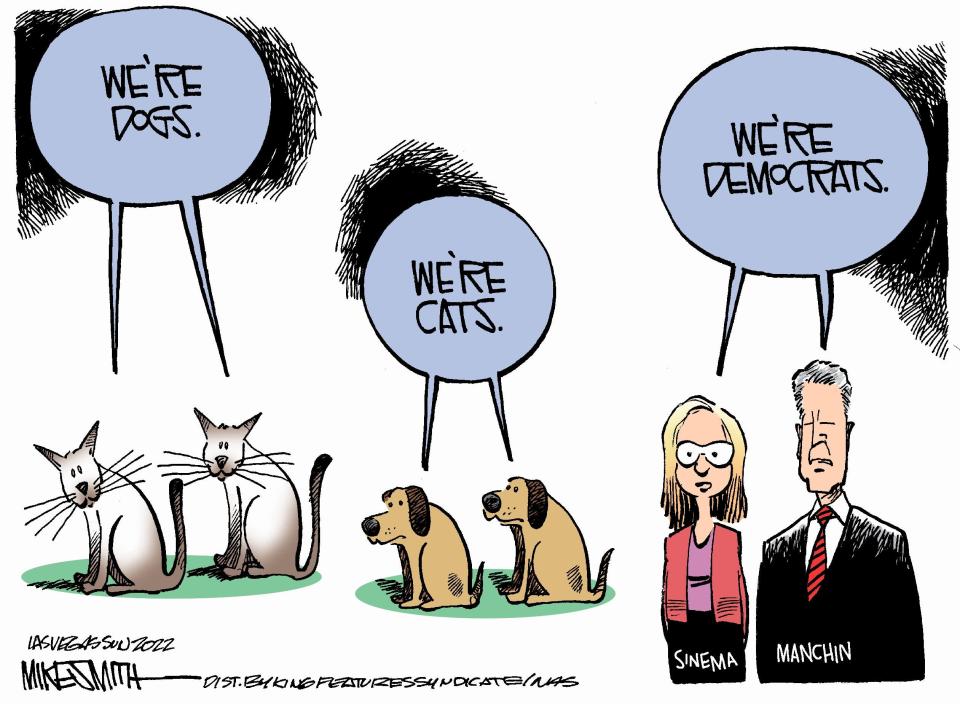Letters to the Editor: Jan. 21, 2022
Ellie McCabe and Alma Lee Loy were way ahead of their times
I have read with great interest recent articles about Ellie McCabe, Laurence Reisman's Wednesday column being the latest. I wish I had met her and her friend Alma Lee Loy. They were brilliant women who were way ahead of their times.
Their creativity certainly changed the face of Vero Beach as they supported the arts, mental health and other initiatives in the community. I found Ellie’s efforts to educate the wealthy about needs of people in the community in 1992 fascinating. That was not so long ago, only 30 years.
For sure they both represent my motto from my days at the World Bank. That is ‘'Go to the source, do it once, get it right, and get on with it!” Reisman referred to Ellie as a quiet giant. In my husband’s obituary I referred to dear Mike as a gentle giant. That term also fits both of these extraordinary women
In closing, another thought. "She might have done it quietly, but she was right up there with community building ‘pantheons’ such as Alma Lee Loy and Dan Richardson." That sentence struck me because when I lived in Rome I was told by an instructor that if the Pantheon were destroyed, it could not be rebuilt because the knowledge to do that did not exist. That may have changed by now, but I'm not sure.
The point is, I hope the mold is not lost with the death of these two remarkable women! The world needs more like them.
Barbara Ruddy, Vero Beach
Seagrass mitigation bank bill is bad news for Florida's estuaries
Some reprehensible pieces of legislation are like vampires: They rise in the dark, and just when you think a bad bill is dead, it’s back on the prowl. House Bill 349, introduced by Reps. Tyler Sirois (R-Merritt Island) and Toby Overdorf (R-Palm City), calls for a “seagrass mitigation bank.” Sen. Ana Maria Rodriguez (R-Doral) introduced a Senate companion, SB 198.
If developers seek permits for projects that destroy seagrasses, they will have the option of buying credits in a mitigation bank to cover costs of seagrass restoration projects elsewhere, potentially even in other bodies of water.
There aren’t many seagrass restoration success stories in Florida. In-kind mitigation – projects that create identical habitats in similar locations – is difficult. Meadows consist of multiple species. It may be impossible or cost-prohibitive to replicate that diversity, especially elsewhere in different conditions. Plus, it takes cleaner water to start seagrass beds than to support established plants. Most Florida waters that support (or supported) seagrass meadows are in decline. That’s true of Florida Bay, Biscayne Bay, Sarasota Bay, Tampa Bay, the Cedar Key area, and most tragically, the Indian River Lagoon.
Second, “preservation credits” could be issued to protect existing meadows, which results in a net loss of seagrass due to the developers’ impacts.
Third, who makes sure the mitigation is successful, and with what criteria for success? Who is liable when a project falls short or fails?
It’s mind-boggling that all three politicians represent districts where seagrass die-offs have hurt constituents, our businesses, and our resilience. We urge them to withdraw this bill, which will blemish the good work that has come out of Florida’s legislature through bankrolling Everglades Restoration and wastewater/stormwater infrastructure. The sponsors should put a stake through the heart of this legislative vampire.
Capt. Mike Conner, Port St. Lucie, is the Indian Riverkeeper.
Guess I'm mistaken about the location of a planned remodeling project
I asked Siri the definition of Limbo and Purgatory. It's religious designation, so I'm not able to use it to describe my situation. After waiting for more than two months for a simple remodeling permit from the Indian River County Building Department, and still no permit, I've determined I must be in Hell.
Barbara du Pont, Vero Beach

IRS claims will impoverish five children and their working mother
I have the sad privilege of trying to help a single Hispanic mother of five children navigate an IRS claim of owed taxes. She had only until Jan, 18 to convince the IRS she is being honest. She worked for someone who paid her “under the table” for cleaning services. This mother had no idea she would need to show the IRS the source of her income but honestly reported her cash income. This mother relies on the federal child support via income tax credit and child tax credit.
Now the IRS wants the 2019 support back because the woman she worked for will not supply documentation that this mother worked for her.
The federal government kept the five children out of poverty in 2019-2020, but the IRS is about to put them back in poverty in 2022. The amount being charged is $7,715 and this mother makes at best $18,000 per year working long hours at low wages. She will be evicted if she cannot pay her rent, for example.
What does it take to get the IRS to look at situations in the overall picture?
Tom Gerace, Port St. Lucie
This article originally appeared on Treasure Coast Newspapers: Letters to the Editor: Jan. 21, 2022

